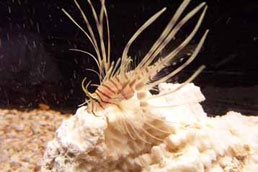Integrated Assessments
 Integrated Assessments provide information so managers and scientists can evaluate a system, develop options for future action, and identify gaps in the understanding of the issues. The Assessments describe the ecosystem, assess its current condition, forecast the future ecological health using current management strategies, and evaluate alternate strategies and their potential impacts.
Integrated Assessments provide information so managers and scientists can evaluate a system, develop options for future action, and identify gaps in the understanding of the issues. The Assessments describe the ecosystem, assess its current condition, forecast the future ecological health using current management strategies, and evaluate alternate strategies and their potential impacts.
They provide a process to evaluate alternate management methods and information that 1) identifies objectives and priorities for marine protection and enhancement, 2) outlines agreed-upon actions and implementation plans to protect and enhance marine ecosystems, 3) serves as a tool for cumulative impact analysis and implementation funding, and 4) maintains or improves ecosystem health and the health of high-priority threatened species.
A successful Integrated Assessment will be:
- Responsive to policy-relevant questions.
- Based on peer review and public participation.
- Integrated, bringing together information and data from many sources.
- Based on high-quality existing information.
- Predictive of ecosystem health, consequences of management actions or non-actions, and outcome for future actions.
An Integrated Assessment also identifies uncertainties in the existing data and gaps in understanding a topic. Through partnerships in the research community, NCCOS builds on its internal and external research capabilities to address them. For example, NCCOS collaborated on an integrated assessment on the Gulf of Mexico hypoxia problem.
Integrated Assessments on marine protected areas are under development, covering marine protected areas, invasive species, and estuary restoration.
Related links
- An Integrated Assessment: Hypoxia in the Northern Gulf of Mexico (2000)
- National Coastal Condition Report II (2005), Chapter 9: Health of Galveston Bay for Human Use



